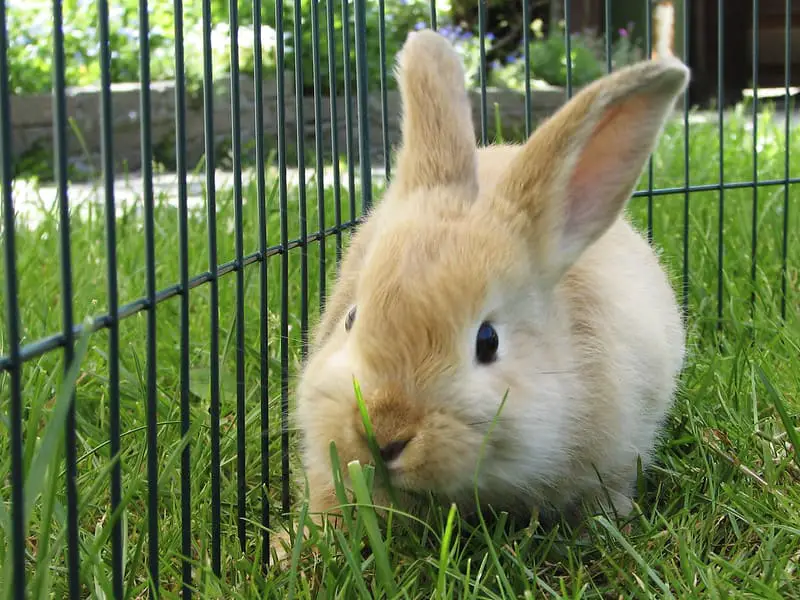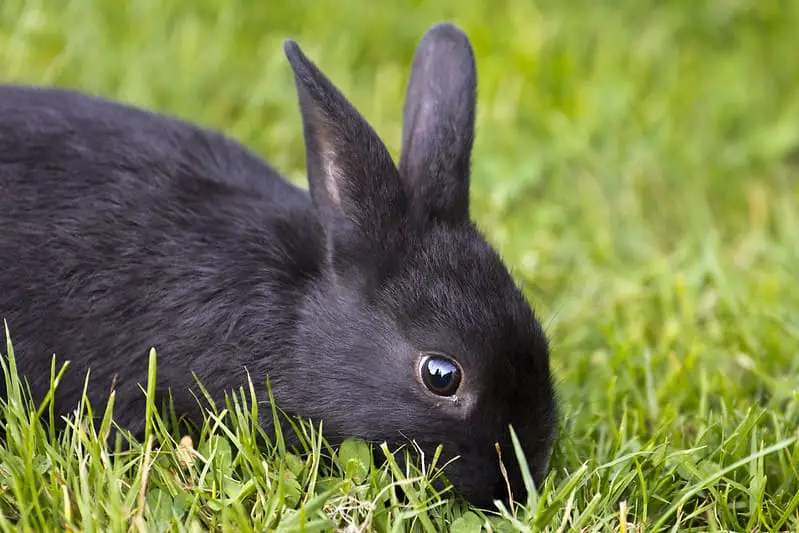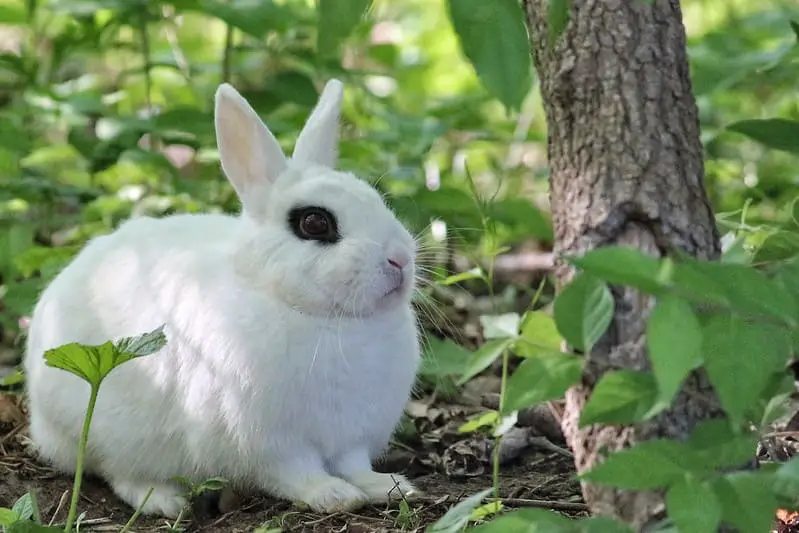Rabbits are charming, gentle, and endearing animals that make wonderful pets. However, selecting the right rabbit for you requires careful consideration of various factors, including breed, temperament, size, age, and your living situation. Choosing the perfect rabbit for your lifestyle and preferences is essential to ensure a happy and harmonious relationship between you and your furry friend. In this comprehensive guide, we will explore the various aspects of rabbit ownership and help you determine what rabbit is right for you.

The Appeal of Rabbits as Pets
Rabbits are popular pets for several reasons:
- Gentle Nature: Rabbits are known for their gentle and docile personalities. They can be great companions and are generally well-suited for families and individuals.
- Cuteness: With their soft fur, floppy ears, and twitching noses, rabbits are undeniably adorable animals that captivate the hearts of many.
- Low Maintenance: Compared to some other pets, rabbits are relatively low-maintenance. They are quiet, don’t require daily walks, and are litter-trained.
- Longevity: With proper care, rabbits can live for 7 to 12 years, providing the opportunity for a long and meaningful bond.
- Variety of Breeds: There are numerous rabbit breeds, each with its own unique characteristics and appearance. This diversity allows you to choose a rabbit that suits your preferences.
Factors to Consider When Choosing a Rabbit
Selecting the right rabbit for your lifestyle and preferences is crucial for a successful pet-owner relationship. Here are some key factors to consider:
1. Breed
Rabbits come in various breeds, each with distinct characteristics in terms of size, coat type, color, and temperament. Some popular rabbit breeds include:
- Holland Lop: Known for their floppy ears and small size, Holland Lops are friendly and make great pets for families.
- Netherland Dwarf: These tiny rabbits are known for their small size and come in various colors. They are active and have friendly personalities.
- Flemish Giant: As one of the largest rabbit breeds, Flemish Giants are gentle giants that are usually calm and good with families.
- Lionhead: Named for the tuft of fur around their head, Lionheads are friendly and make excellent pets.
- Rex: Rex rabbits have a distinctive, velvety coat. They are known for their gentle nature and adaptability.
- Angora: These rabbits have long, silky fur, which requires regular grooming. They can be friendly and make for an interesting addition to the household.
The choice of breed should align with your preferences regarding the rabbit’s size, coat, and personality.
2. Size
Rabbits come in various sizes, from the tiny Netherland Dwarf to the larger Flemish Giant. Consider your living space and the amount of room you can dedicate to your rabbit. Smaller breeds are more suitable for apartments and smaller homes, while larger breeds may require more space.
3. Age
The age of the rabbit is an important factor to consider:
- Baby (Kitten): Baby rabbits, also called kittens, are incredibly cute but require more care and patience. They need to be socialized, litter-trained, and are generally more active.
- Young Adult: Young adult rabbits, typically around 6 months to a year old, may have established behaviors and habits but are still adaptable and trainable.
- Senior: Older rabbits, usually over 5 years, can be great companions, but they may have specific health needs and a more settled personality.
Choose an age that suits your ability to provide care, time for training, and your desire for companionship.
4. Temperament
Rabbit temperaments can vary significantly. Some are naturally more sociable and enjoy human interaction, while others may be more reserved or independent. It’s essential to consider your own personality and lifestyle when selecting a rabbit with a compatible temperament. If you have children or other pets, a friendly and sociable rabbit might be a better choice.
5. Grooming Needs
Consider how much time you’re willing to devote to grooming your rabbit. Long-haired breeds like Angoras require regular brushing to prevent matting, while short-haired breeds have lower grooming demands.
6. Exercise Requirements
Rabbits are active animals and need space to run and play. Ensure that you can provide ample exercise opportunities for your rabbit, whether indoors or outdoors, and consider the breed’s activity level.
7. Housing
You’ll need to provide suitable housing for your rabbit, whether it’s a hutch, cage, or playpen. Ensure you have enough space for the housing and that it’s secure, well-ventilated, and comfortable for your chosen breed.
8. Dietary Needs
Rabbits have specific dietary requirements, including hay, fresh vegetables, and high-quality rabbit pellets. Be prepared to meet these dietary needs and understand the nutritional requirements of your chosen breed.
9. Health Considerations
Rabbits can be prone to specific health issues, such as dental problems, obesity, and gastrointestinal stasis. Different breeds may have varying susceptibilities to certain health concerns. Be prepared to provide proper healthcare and regular check-ups.
10. Lifespan
Consider the long-term commitment of rabbit ownership. These pets can live for over a decade, so be ready for a lengthy partnership with your rabbit.

Types of Rabbits: Breeds and Characteristics
Let’s take a closer look at some popular rabbit breeds and their characteristics to help you make an informed choice:
1. Holland Lop
Size: Small
Coat: Short, dense, soft fur
Colors: Various
Temperament: Gentle, social, good with children
Exercise Needs: Moderate
Grooming: Low
Lifespan: 7-10 years
Housing: Indoors
The Holland Lop is renowned for its adorable appearance, with its distinctive floppy ears and small size. They are friendly, sociable, and often enjoy being handled. This breed is a popular choice for families and individuals alike due to its sweet disposition and manageable grooming needs.
2. Netherland Dwarf
Size: Extra small
Coat: Short, dense, soft fur
Colors: Various
Temperament: Active, social, friendly
Exercise Needs: High
Grooming: Low
Lifespan: 7-10 years
Housing: Indoors
Netherland Dwarfs are one of the tiniest rabbit breeds, making them a great choice for those with limited space. Despite their small size, they are known for their active and social nature. These rabbits enjoy interaction with their owners and need ample exercise to stay happy and healthy.
3. Flemish Giant
Size: Extra large
Coat: Short to medium length, dense fur
Colors: Various
Temperament: Calm, gentle, good with families
Exercise Needs: Moderate
Grooming: Low
Lifespan: 6-10 years
Housing: Indoors or outdoors
Flemish Giants are some of the largest rabbits, with a calm and friendly disposition. They are generally well-suited for families and individuals with larger living spaces. Despite their size, they are known for their gentle nature and make great companions.
4. Lionhead
Size: Small to medium
Coat: Medium length, mane around the head
Colors: Various
Temperament: Friendly, social, good with families
Exercise Needs: Moderate
Grooming: Moderate
Lifespan: 7-10 years
Housing: Indoors
Lionhead rabbits are characterized by the tuft of fur around their head, resembling a lion’s mane. They have friendly and social personalities, making them great companions for families and individuals. While their grooming needs are not as low as some other breeds, they are generally manageable.
5. Rex
Size: Small to medium
Coat: Short, dense, velvety fur
Colors: Various
Temperament: Gentle, calm, adaptable
Exercise Needs: Moderate
Grooming: Low
Lifespan: 6-10 years
Housing: Indoors
Rex rabbits are known for their unique velvety coat and gentle personality. They are adaptable and generally easy to care for, making them a suitable choice for families and individuals alike. Their grooming needs are relatively low, making them a convenient option for those who prefer a lower-maintenance pet.
6. Angora
Size: Small to medium
Coat: Long, silky fur
Colors: Various
Temperament: Friendly, calm, good with families
Exercise Needs: Moderate
Grooming: High
Lifespan: 7-12 years
Housing: Indoors
Angora rabbits are famous for their long, luxurious fur, which requires regular grooming to prevent matting. Despite their grooming demands, they are friendly and generally good with families. Angoras can be an excellent choice for those willing to invest time in their care.
Making the Right Choice
To select the right rabbit for you, it’s important to:
- Evaluate Your Lifestyle: Consider your living situation, the amount of time you can dedicate to your pet, and your family composition.
- Research Breeds: Learn about different rabbit breeds and their characteristics to find one that aligns with your preferences.
- Consider Age: Decide if you want a baby, young adult, or senior rabbit based on your ability to provide care and your desire for companionship.
- Assess Temperament: Choose a rabbit with a temperament that matches your personality and living situation.
- Plan for Grooming: Determine how much time you can commit to grooming, and select a breed with grooming needs that fit your schedule.
- Provide Adequate Housing: Ensure you have appropriate housing for your rabbit, whether indoors or outdoors.
- Meet Dietary Needs: Be ready to provide the right diet for your chosen breed.
- Prepare for Health Care: Plan for regular vet check-ups and the potential health needs of your rabbit.
- Commit to Long-Term Care: Understand that rabbits can live for a decade or more, so be prepared for a long-term commitment.

Tips for Responsible Rabbit Ownership
Once you’ve chosen the right rabbit for you, it’s important to be a responsible and caring pet owner. Here are some tips for providing the best possible care for your furry friend:
- Socialization: Spend time with your rabbit to build a bond and ensure they receive the social interaction they need.
- Regular Exercise: Provide ample opportunities for exercise, both indoors and outdoors if possible. Encourage playtime and explore safe outdoor spaces.
- Proper Diet: Offer a balanced diet of hay, fresh vegetables, and high-quality rabbit pellets. Avoid overfeeding, as obesity can be a concern.
- Grooming: If you have a long-haired breed, commit to regular grooming to prevent matting and maintain their coat health.
- Health Care: Schedule regular vet check-ups to monitor your rabbit’s health and address any concerns promptly.
- Safety: Rabbit-proof your home to prevent your pet from accessing dangerous items or areas. Keep electrical cords and toxic substances out of reach.
- Litter Training: Invest time in litter training your rabbit to ensure a clean living environment.
- Enrichment: Provide toys and activities to keep your rabbit mentally and physically stimulated. They enjoy toys they can chew on and explore.
- Neutering/Spaying: Consider spaying or neutering your rabbit to prevent health issues and unwanted pregnancies.
- Consult Experts: If you have questions or concerns, consult with rabbit experts or veterinarians who specialize in rabbit care.
In Conclusion
Selecting the right rabbit for you involves considering breed, size, age, temperament, grooming needs, housing, dietary requirements, health care, and your commitment to long-term care. With the right choice and responsible pet ownership, you can enjoy a loving and fulfilling relationship with your furry friend for many years to come. Whether you opt for a tiny Netherland Dwarf, a friendly Holland Lop, or any other breed, a well-cared-for rabbit can be a delightful addition to your family and your life.